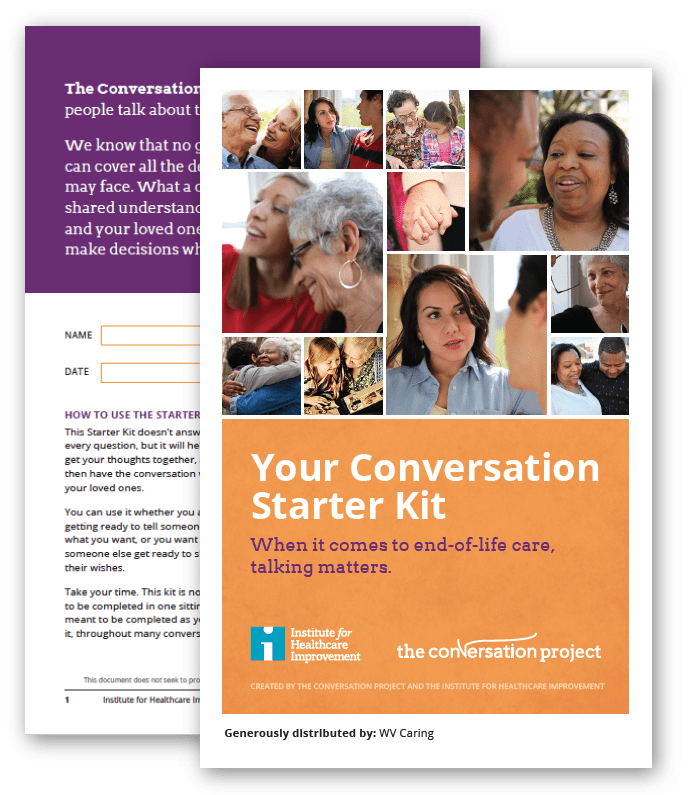Think about the time when you were excited to take a hot shower, brush your teeth and dress up in fresh clothes. While it may not seem like a big deal, sick patients often yearn to perform everyday activists that most of us take for granted. Unfortunately, they are unable to complete them owing to their illness or limited mobility.
This is when hospice aids help them perform simple everyday tasks and plays a pivotal role in patient care.
Samantha lived on her own and had care from hospice caregivers who came to check and help her perform different chores. After suffering from a stroke, Samantha, aged 88, was left with limited mobility on her left side and had difficulties with her speech.
As she was immobile, the key to the main entrance was kept in the locked box which needed a code to access it.

As the hospice caregiver reached her house, she took out the key from the box and knocked on the door before entering, as it was still Samantha’s house.
Next, they helped Samantha with things that needed to be done for the day and asked her if she needs any additional help. Further, as she was bedbound and needed help with bathing, the caregiver closed the curtains in the room and turned the light on. This made Samantha thankful for their help and for respecting her privacy.
The caregiver then asked her if she could give her a bath, as she needed her consent to be able to perform the job. Samantha was happy for the help and communicated with the caregiver throughout the process.
Next, they helped her get dressed up and asked if she needed any other assistance before they leave…
Sometimes a patient who receives hospice care and lives alone is thankful to have someone to talk to. Even though the caregivers may not do a lot, the patient feels like he is in safe hands when the caregiver maintains the patient’s dignity throughout the aspects of the care.
In all healthcare settings, it is vital that the patient is treated with dignity and receive dignified care. As healthcare professionals, hospice care experts are taught to treat each patient as an individual, be empathetic to their needs and treat them holistically. The patient needs to feel valued and respected.
Why Is It Important To Maintain Patient Dignity?
One of the greatest fear people have as they age is losing their sense of dignity and independence. Dignity is a universal need that is important for a person’s welfare. As people have less control over their life near the end-of-life, it is vital for caregivers to act in a way that preserves the patient’s sense of dignity.
“Why focus on patient’s dignity?” you may ask.
Well, there’s an intimate connection between a person’s self-image and the way a person feels he is being seen by the people working in healthcare.
Patient and families often look at caregivers as they would look to a mirror. They want to seek a positive reflection of themselves. It is important for caregivers to reflect back an appreciation of the whole person rather than the affliction. No one wants to be referred to as a tumor or disease. No one wants to feel invisible. Patients often want to be seen as a whole person who is seeking medical help.
According to different studies, it was proved that a personal sense of dignity for people living with a terminal illness can make a difference in a person’s desire to live or die.
These studies showed why the health care system has a duty to safeguard every patient’s sense of value, dignity, and self-esteem.

How To Maintain Dignity When Providing End-Of-Life Care
Family and hospice caregivers can help maintain a patient’s dignity at the end-of-life by focusing on his physical, social, emotional, and spiritual needs.
- Physical Needs
Hospice care helps the patient control his pain and other symptoms that might be causing discomfort. It is important to ensure that the patient is in the right environment to receive dignified care. It is vital to avoid any unnecessary procedures that do not help improve the patient’s quality of life. - Social Needs
Social assistance often helps promote dignity. Help the patient sort out his finances, play cards or indulge in other activities that he enjoys. You can also make it easy for the patient to spend some quality time with his family. - Emotional Needs
It is important to communicate with the patient. Listen to what he has to say, sympathize with his feelings, validate his pain and concerns. You can also involve the patient in the decision-making process.
- Spiritual Needs
When a person is at the end-of-life, he may have spiritual needs. This can include wanting to know more about his illness, wanting to maintain his identity. It is important to work with the patient and understand his perspective. - Tips For Maintaining Dignity In Hospice CareIt is vital that family caregivers and hospice care providers respect a patient’s wishes at the end of his life. As hospice care addresses the patient’s needs and preferences, it can help increase a person’s dignity at the end-of-life.
- Involve Them In Decision Making Process
Instead of going ahead with a decision on your own, talk to the patient and explain it to them. Not involving the patient in the decision-making process may harm their dignity and make them feel undervalued and disconnected.People appreciate it when they are included in the decision-making process as it gives them the sense that their preferences and opinions are respected. - Talk to Them
When you walk in to the patient’s room, make sure to greet them. Never talk about the patient as an object or a third person as if they are not present there. It is also important to maintain a warm, caring, sincere and positive attitude when caring for the patient. - Speak Respectfully
How do you address your patients? Name is a crucial part of a person’s identity. Therefore, do not assume about the title or name a person would like to be addressed. Rather, ask the patient how he would like to be addressed.
Making assumptions, even if you think is a polite choice, can be damaging to their dignity. Also, remember to speak respectfully in a polite and amiable voice. They are adults, not children!

- Ask How They Want to be Cared
Have you ever asked the patient how he wants to be cared for? When providing personal care such as dressing or bathing, ask them how they want to be cared. Do they have any preferences? You can also give them choices when possible. If you are going to touch them, make sure you tell them about it in advance. - Protect Physical Privacy and Space
As a caregiver, it is important to ask for permission from the patient and never barge into their personal space. Respecting the patient’s privacy is of utmost importance.Always knock and ask for permission before entering a person’s room. Even when cleaning, respect their space and ask if it is okay to move certain things. The simple act of asking for permission makes a person feel more respected and valued. - Encourage Life Story-telling
Being at home can make the patient feel shut off from the outside world. They may feel that they are a burden for the caregiver. While life may feel hectic owing to your caregiving duties, remember to have a friendly chat with the patient as you may be the only one person they talk to.
Talk to them about their life. Time, sympathy and understanding are the secrets to care for a patient. Asking them about their life experiences and stories can help them maintain their identity and feel good about themselves.
Really listen and interact with them. Show interest in what they are sharing.
“When your loved one is very sick, you can fall into a panic. Small things become monumental things.”
Let your loved ones receive gentle, compassionate care they deserve.

